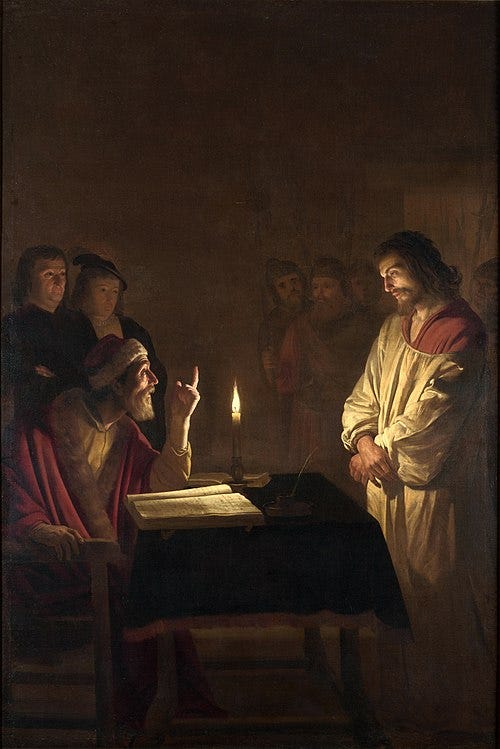Caiphas the High Priest
Saturday, April 12th Readings Reflection: Saturday of the Fifth Week of Lent
Today’s Gospel sets the liturgical stage for the drama of Holy Week. We hear Caiphas prophesying, “It is expedient for you that one man should die for the people, and that the whole nation perish not” (Jn 11:50 DRB).
The first notable detail about this passage is a historical fact pertaining to Caiphas himself. St. John says that Caiphas was the Jewish high priest that year, the year being the same in which Our Lord was condemned and died on the Cross. St. Augustine of Hippo points out the irony of Caiphas’ being called high priest that year, for it was the same year in which the true and eternal High Priest offered the perfect and eternal sacrifice for the redemption of mankind, a sacrifice of pure love. Another interesting historical detail about Caiphas is from the first century Jewish historian Flavius Josephus, who wrote that Caiphas had purchased high role as high priest with money.
The Church Fathers wrote that Caiphas’ prophecy was true and the product of the Holy Ghost, for it is a prophecy about man’s redemption wrought by Christ’s Passion, Death, and Resurrection. However, Caiphas did not intend to cooperate with the Holy Ghost in making his prophecy, and he even began the prophecy by attempting to insult the other Pharisees: “You know nothing” (Jn 11:49). He downplayed the seriousness of even one man’s death, counting it as nothing for one man to die for the sake of the nation. In Caiphas’ mind, the death of one man (Whom we know is Our Lord) was as insignificant as the death of the lambs that the Jewish priests sacrificed daily.
The early Christian scholar Origen wrote that Caiphas intended his prophecy to encourage the Pharisees to kill Jesus. Origen explained that even Caiphas’ insult conveys a truth about Jesus, a meaning hidden from Caiphas: “[The Pharisees indeed] knew nothing of Jesus… [They] did not know that He was truth, wisdom, justice, and peace…. It was as man that [Jesus] died for the people: in so far as He is the image of the invisible God, He was incapable of death. And He died for the people, in that He took upon Himself, made away with, blotted out the sins of the whole world” (Catena aurea).
As the famous saying reminds us, God writes straight with crooked lines, and He used even the hard-hearted Caiphas to reveal truths about Our Lord and the mystery of His Passion and Death. As we enter the holiest week of the liturgical year, we not only remember and commemorate but also relive the holy events that occurred two thousand years ago. Despite our weaknesses and failings, Christ calls each of us to watch and pray with Him in the Garden of Gethsemane, to walk alongside Him on the road to Calvary, to kneel with Our Lady and kiss His feet as He hangs on the Cross, to mourn with the Apostles while He is in the tomb, and to rejoice when He rises on the third day. May God help us to more fully appreciate what we are about to experience in these coming days, not taking it for granted or diminishing its magnitude as did Caiphas, but instead being overwhelmed with gratitude for our God Who loved us to the point of death.



Thanks for your article and insightful point of view
I think Caiphas was expressing a pragmatic “raison de etat” solution to the problem Jesus posed. The Gospel’s writer calling Caiphas machinations a “prophecy” was a use of irony, for Caiphas’ quest to sacrifice one man for the sake of the nation transcended his political aims into a much larger rescue: our own salvation. Caiphas was both unaware of his “prophecy” and of its consequences - more irony there too.